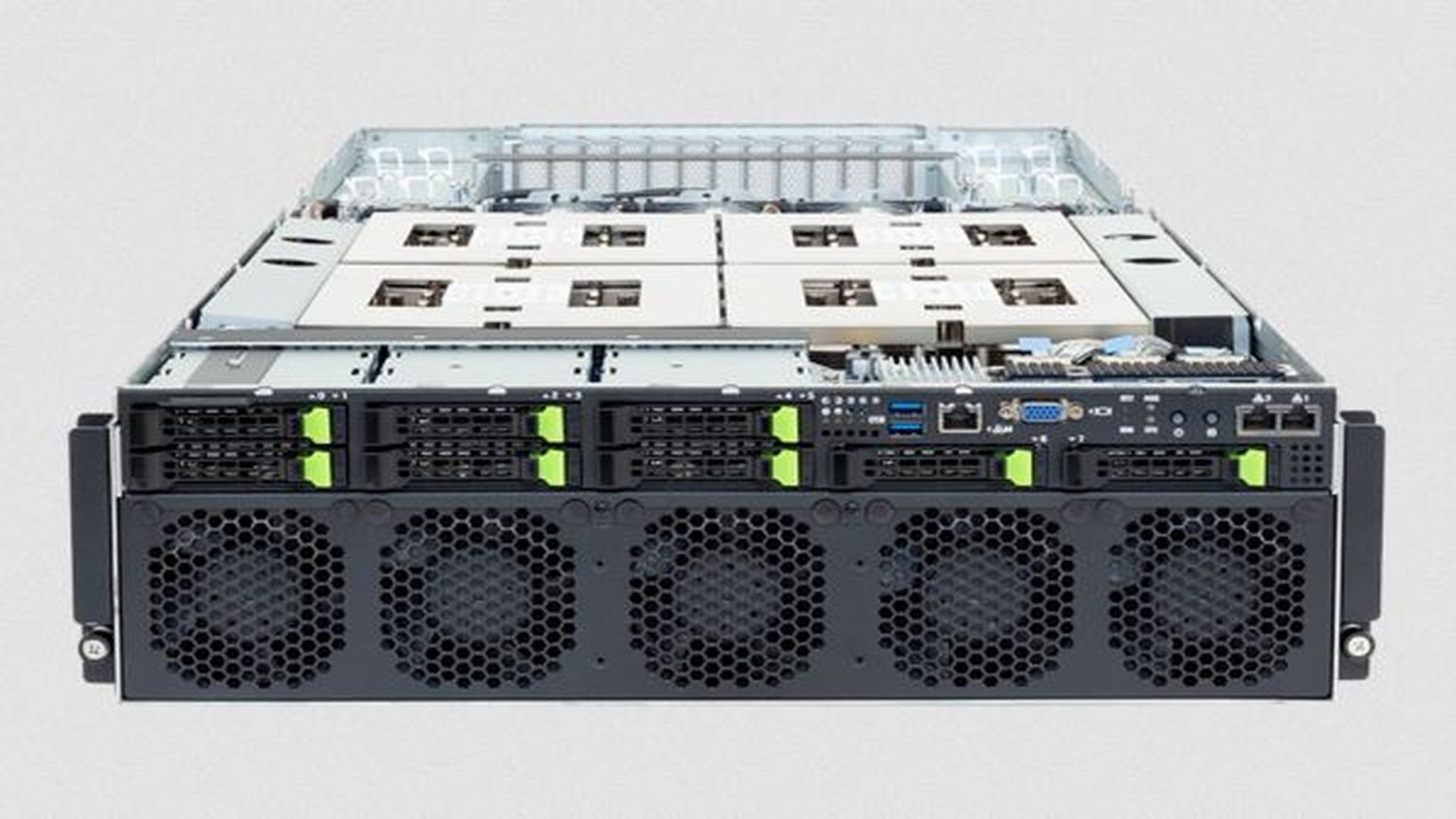(Image credit: Gigabyte)
Gigabyte G383 R80 supercomputer costs $304,207Distributors and users without a clear project are not eligibleGet up to two weeks free trial via emailGigabyte, through its subsidiary Giga Computing, is offering qualified individuals and organizations the opportunity to test one of the world’s most advanced supercomputers, the Gigabyte G383-R80 server powered by AMD MI300A APUs for free.
There’s a catch; after the seven-day trial period, the configured price of this high-performance system is $304,207.
The price isn’t the only thing that might ward you off; in addition to it being a strict time-bound trial period, distributors aren’t eligible to apply, and users must have a clear project in mind to qualify.
Claiming Gigabyte’s G383-R80 offerTo participate, applicants must fill out a form on the Gigabyte Launchpad website. Giga Computing will then review the application based on the commercial value or innovative potential of the proposed project.
If approved, the company will contact the applicant within three business days to confirm details. The trial period lasts for seven days, though extensions of up to two weeks can be requested through a sales representative or via email. Access to the server will be granted within two weeks, and users must initiate their project within three days of receiving the access link.
The Gigabyte G383-R80 server is designed for demanding workloads such as AI training, AI inference, and high-performance computing (HPC). It features a 3U rack-mount chassis and supports up to four AMD Instinct MI300A APUs, which combine CPU and GPU cores for accelerated computing.
For storage, it has eight 2.5-inch NVMe Gen5/SATA/SAS hot-swap drive bays, 12 PCIe Gen5 x16 slots, and a variety of storage options, including M.2 NVMe SSDs and U.2/U.3 NVMe SSDs with capacities ranging from 400GB to 61.44TB.
Sign up to the TechRadar Pro newsletter to get all the top news, opinion, features and guidance your business needs to succeed!
Networking capabilities include onboard 10Gb/s Ethernet ports and support for PCIe expansion cards like RJ45, SFP+, QSFP28, and QSFP56.
You may also likeCheck out our roundup of the best graphics cards for all budgetsFuture exascale supercomputers will be built using these HPE Lego-like cabinets able to hold nearly 100,000 AMD EPYC CoresHPE’s tiny 64-core AMD EYPC server can support three GPUs, six SSDs
Efosa has been writing about technology for over 7 years, initially driven by curiosity but now fueled by a strong passion for the field. He holds both a Master’s and a PhD in sciences, which provided him with a solid foundation in analytical thinking. Efosa developed a keen interest in technology policy, specifically exploring the intersection of privacy, security, and politics. His research delves into how technological advancements influence regulatory frameworks and societal norms, particularly concerning data protection and cybersecurity. Upon joining TechRadar Pro, in addition to privacy and technology policy, he is also focused on B2B security products. Efosa can be contacted at this email: [email protected]
Most Popular










